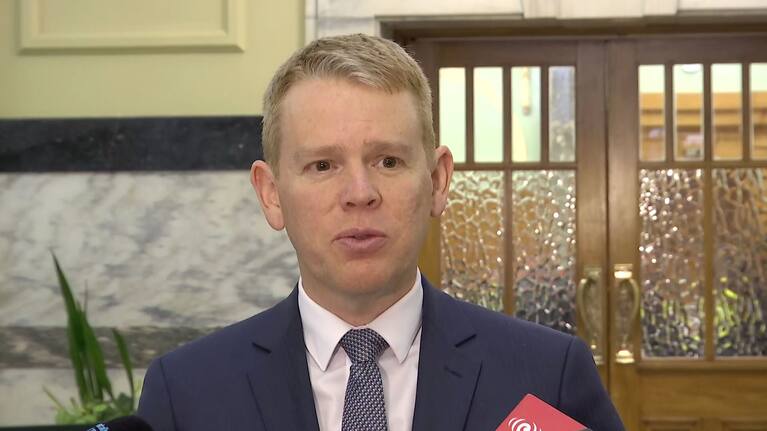The government announces that it will tackle high electricity prices by “urgently” lifting the ban on offshore oil and gas production and “as a stopgap measure” removing regulations that hinder the construction of facilities for importing liquefied natural gas.
The decisions were made in Cabinet today, along with other measures aimed at addressing what the Government describes as a “serious risk to New Zealand’s energy security and affordability”.
Energy Minister Simeon Brown said the country is currently experiencing an energy shortage.
“The lake levels are low, the sun is not shining, the wind is not blowing and our natural gas supply is not sufficient to meet demand.
“This has resulted in New Zealand currently having the highest wholesale electricity prices of any country we normally compare ourselves with. This is devastating for our manufacturing and export sectors and is unfortunately causing companies to curtail production or close altogether.
“New Zealand needs abundant and affordable energy. That’s why the Coalition Government is taking a series of immediate actions to restore confidence in our energy sector and remove regulatory hurdles that prevent companies from generating electricity or delivering the fuel New Zealanders need.”
A government statement said natural gas production fell by 12.5 percent in 2023 and a further 27.8 percent in the first three months of this year, leading to a nationwide shortage.
“This has led to a decline in manufacturing output and to power generators having to use more coal and diesel to power our electricity system,” it said.
Resources Minister Shane Jones said that unlike many other countries, New Zealand was “blessed with energy resources under its feet”.

“Natural gas has attracted new industries to our country, created well-paying jobs in our regions and energised the manufacturing, producing and exporting companies that form the backbone of our economy.
“It is vital for New Zealand that this energy supply continues, but already some businesses are having to close until energy prices come down. Hundreds of jobs are at stake. That is why we are taking urgent action to strengthen our energy security.
“Oil and gas explorers need to have the confidence to invest here, knowing that they will play a key role in New Zealand’s energy sector now and in the future.”
Ministers would present options to Cabinet in October to mitigate country risk in a liquefied natural gas (LNG) plant and domestic gas production.
The Ministry of Business, Innovation and Employment (MBIE) estimates that around 50 countries worldwide use LNG to support their domestic energy production.
Other points approved by the Cabinet include easing restrictions on power transmission companies that own electricity generation, improving access to quota and water storage facilities, and improving regulation of the electricity market.
Faster procedures for power generation, distribution and transmission projects
Brown also said the government would push forward reforms aimed at making the approval, construction and maintenance of renewable energy generation, distribution and transmission projects “easier and cheaper”.
The Energy Minister said we have an exciting future ahead, powered by clean and green electricity but “underpinned by fossil fuels”.
“Through electrification, we can boost our economy, combat climate change and strengthen our energy security.
“The Government’s Electrify NZ plan will harness New Zealand’s abundant renewable energy resources so that our cars, buses, trains, ferries and factories are increasingly powered by wind, hydro and solar energy.”
RMA Reform Minister Chris Bishop said if New Zealand was to achieve its ambitious goals to boost the economy and reduce emissions, it needed to make fundamental changes to its planning and regulatory framework.
Electrify NZ’s plan included establishing a centralised fast-track process for approvals and permits under the Fast Track Approvals Act, which is due to come into force before the end of the year.
This includes changes to the Resource Management Act to speed up resource approval processes.
The change will be made through the Government’s second Resource Management Amendment Bill, which is due to be introduced later this year as part of the second phase of the Government’s RMA reforms.
The government also plans to introduce legislation to enable the use of offshore renewable energy by mid-2025 and to update the regulatory framework for electricity grids and new connections.
Investing in fossil fuels “like buying shares in the Titanic” – Greens
Green Party energy spokesman Scott Willis said fossil fuels were a “sinking ship” that New Zealand could not tie its future to.
“Investing in fossil fuels in the midst of a climate crisis is like buying shares in the Titanic.
“We can build a more sustainable and cost-effective energy network that puts people and the planet before the profits of our energy suppliers.
“Relying on fossil fuels is delaying the transition we so desperately need and instead exacerbating the climate crisis that is already raging.”
He said profits from the gentailer business should be reinvested in improving energy efficiency and strengthening the supply of renewable energy.
“The delay is one of the reasons why we find ourselves in this situation now – but it is not too late to turn things around.
Labor Party leader Chris Hipkins said the government’s announcement came today, “the day the government officially gave up the fight against climate change”.

He said there was an abundance of renewable energy in New Zealand and its use needed to be expanded.
“Billions of dollars have been invested in the search for new oil and gas in New Zealand – nothing has been found.”
He said the problem was that the gentailers had prioritized profit maximization over reinvestment in renewable energy generation.
“Fossil fuels are not our future, but renewable energies.”

